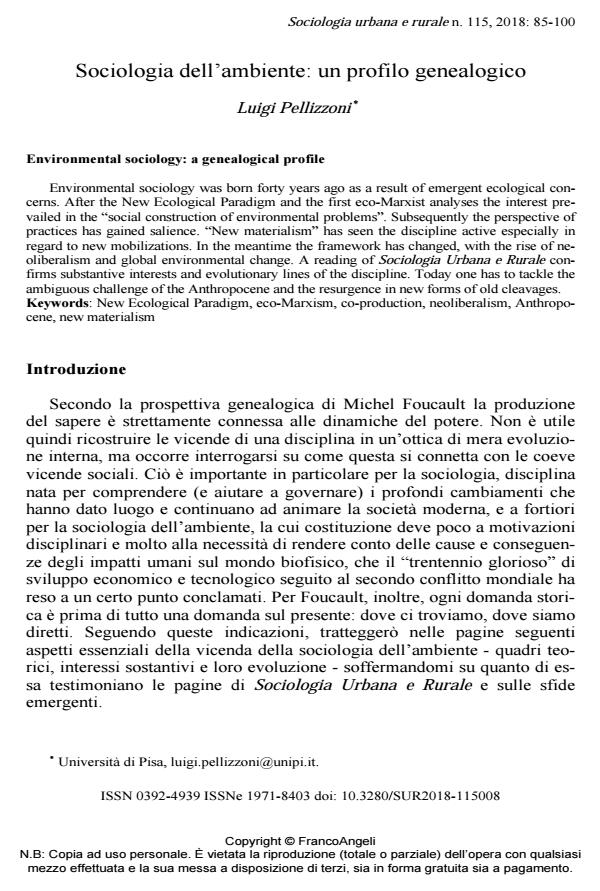Environmental sociology: a genealogical profile
Journal title SOCIOLOGIA URBANA E RURALE
Author/s Luigi Pellizzoni
Publishing Year 2018 Issue 2018/115
Language Italian Pages 16 P. 85-100 File size 178 KB
DOI 10.3280/SUR2018-115008
DOI is like a bar code for intellectual property: to have more infomation
click here
Below, you can see the article first page
If you want to buy this article in PDF format, you can do it, following the instructions to buy download credits

FrancoAngeli is member of Publishers International Linking Association, Inc (PILA), a not-for-profit association which run the CrossRef service enabling links to and from online scholarly content.
Environmental sociology was born forty years ago as a result of emergent ecological concerns. After the New Ecological Paradigm and the first eco-Marxist analyses the interest prevailed in the "social construction of environmental problems". Subsequently the perspective of practices has gained salience. "New materialism" has seen the discipline active especially in regard to new mobilizations. In the meantime the framework has changed, with the rise of neoliberalism and global environmental change. A reading of Sociologia Urbana e Rurale confirms substantive interests and evolutionary lines of the discipline. Today one has to tackle the ambiguous challenge of the Anthropocene and the resurgence in new forms of old cleavages.
Keywords: New Ecological Paradigm, eco-Marxism, co-production, neoliberalism, Anthropocene, new materialism
- Quantitative Sustainability Giovanni Carrosio, pp.139 (ISBN:978-3-031-39310-5)
Luigi Pellizzoni, Sociologia dell’ambiente: un profilo genealogico in "SOCIOLOGIA URBANA E RURALE" 115/2018, pp 85-100, DOI: 10.3280/SUR2018-115008